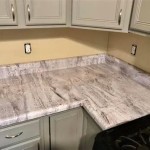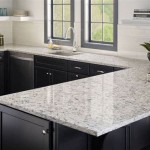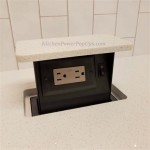Pour-In-Place Concrete Countertops: A Comprehensive Guide
Pour-in-place concrete countertops offer a unique fusion of durability, affordability, and aesthetic versatility. Unlike precast or prefabricated counterparts, these countertops are created directly on-site by pouring liquid concrete into custom-built molds. This meticulous process delivers seamless and customizable surfaces that perfectly complement any kitchen or bathroom design.
Benefits of Pour-In-Place Concrete Countertops
- Durability: Concrete countertops are renowned for their exceptional resilience, withstanding wear and tear, impact, and moisture damage with ease.
- Affordability: In comparison to other countertop materials such as granite or quartz, concrete offers a budget-friendly option while maintaining a high level of quality.
- Versatility: The customizable nature of poured-in-place concrete allows for limitless design possibilities, including intricate shapes, unique edges, and a wide range of color and texture options.
- Heat Resistance: Concrete countertops exhibit exceptional heat resistance, making them ideal for areas where pots and pans are likely to come into contact with the surface.
- Hygienic: Non-porous and seamless, poured-in-place concrete countertops minimize bacteria accumulation, promoting hygiene.
Installation Process
Installing pour-in-place concrete countertops is a multi-step process requiring precision and attention to detail. The typical steps involved include:
- Creating the Mold: A custom-built mold is constructed to define the shape and size of the countertop.
- Preparing the Subsurface: The area where the countertop will be installed is prepared by creating a level and stable surface.
- Pouring the Concrete: Liquid concrete is carefully poured into the mold and leveled to ensure a uniform surface.
- Curing: The poured concrete is allowed to cure and harden, typically over a period of 28 days or more.
- Grinding and Polishing: Once the concrete has fully cured, it is ground and polished to achieve the desired finish and texture.
- Sealing: To enhance durability and protect against stains, the countertop is sealed with a penetrating sealer.
Maintenance and Care
Maintaining pour-in-place concrete countertops is relatively straightforward and requires basic care practices. Regular cleaning with a mild detergent and water is sufficient to remove dirt and debris. Avoid using harsh chemicals or abrasive cleaners that can damage the surface. To preserve the countertop's appearance, resealing every few years is recommended.
Design Considerations
The design possibilities for pour-in-place concrete countertops are virtually endless. From sleek and modern designs to rustic and organic aesthetics, these versatile surfaces can complement any décor. Creative enhancements, such as embedded objects, pigments, and unique textures, can further personalize and enhance the countertop.
Conclusion
Pour-in-place concrete countertops provide a compelling combination of durability, affordability, and design versatility. Their seamless integration, customizable nature, and ease of maintenance make them an excellent choice for homeowners seeking a functional and aesthetically pleasing surface for their kitchen or bathroom. With proper care and maintenance, these countertops can deliver years of beauty and functionality.

How To Pour Concrete Countertops In Place Outdoor Kitchen Part 6

How To Make Diy Cast In Place White Concrete Countertops Do It Yourself Fun Ideas

How To Make Diy Cast In Place White Concrete Countertops Do It Yourself Fun Ideas

Pour In Place Concrete Countertop Pouring Step 4 1 Exchange

Pour In Place Concrete Countertop Furniture Casting Mix Xs Procast Plus Surecrete Decorative S

A Primer On Concrete Countertops Precast Vs Pour In Place Addicted 2 Decorating

Concrete Countertops How To Pour In Place Outdoor Kitchen Part 6 Youtube

Concrete Countertops Faq Fine Homebuilding

Diy Concrete Countertops Part I Setting The Forms Wildfire Interiors

Pre Cast Vs In Place Concrete Countertops








